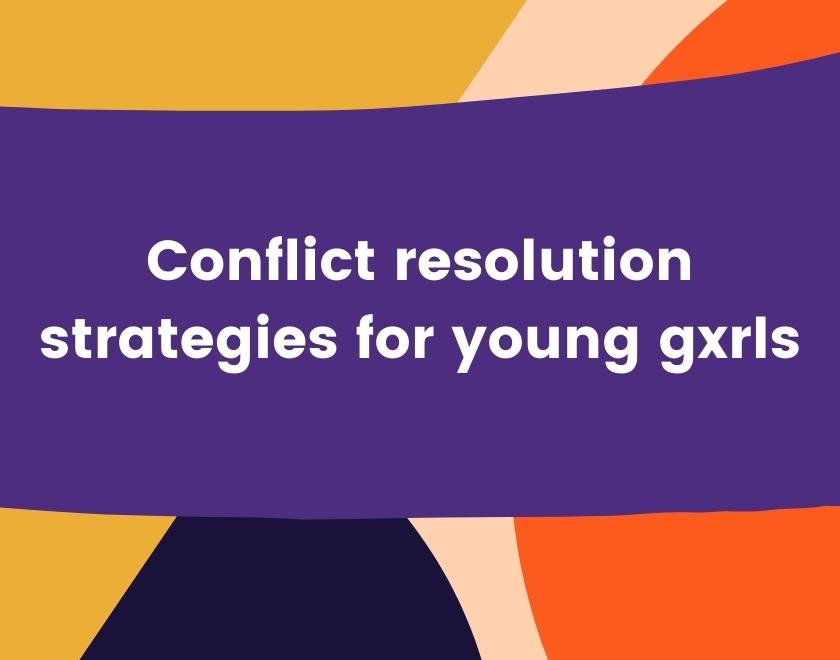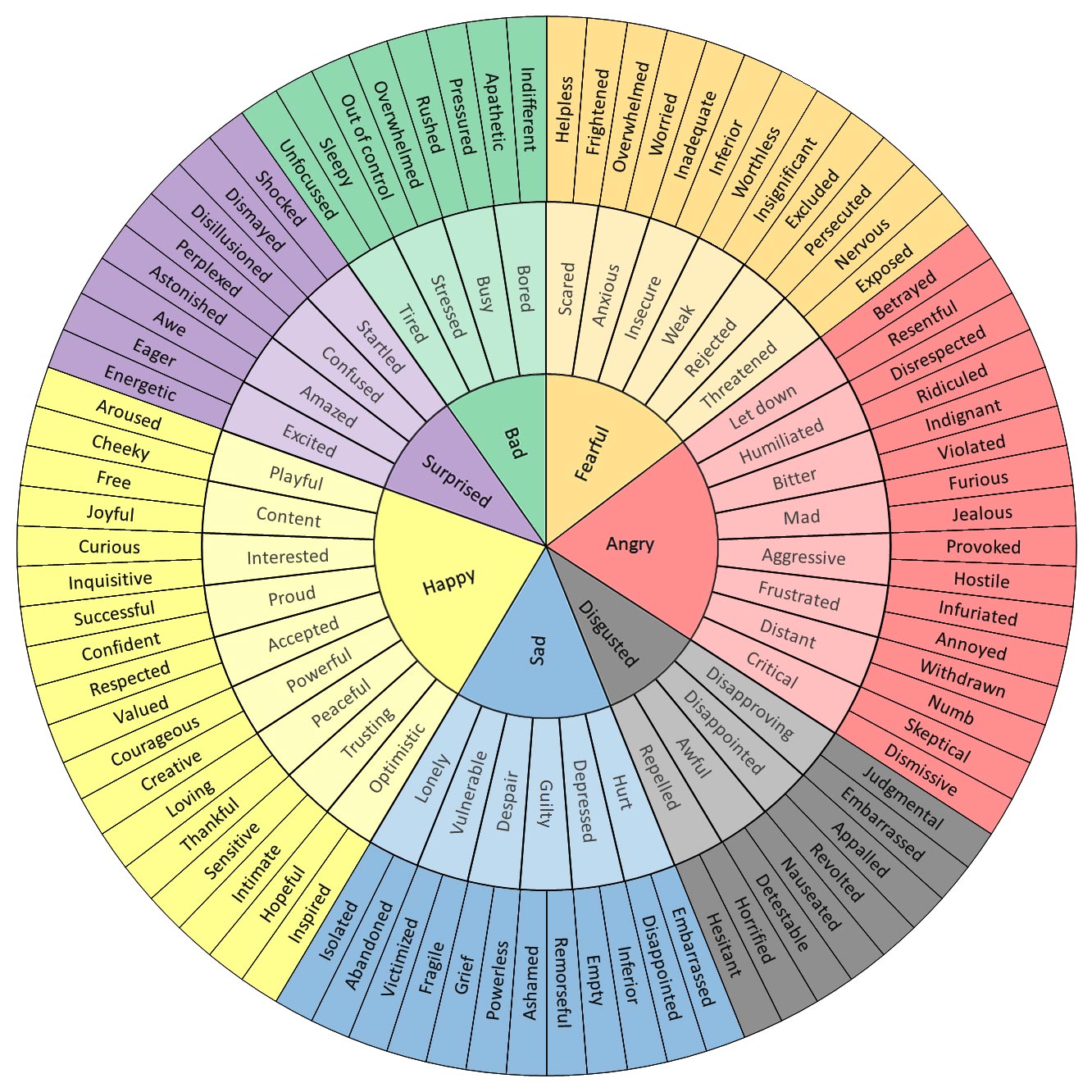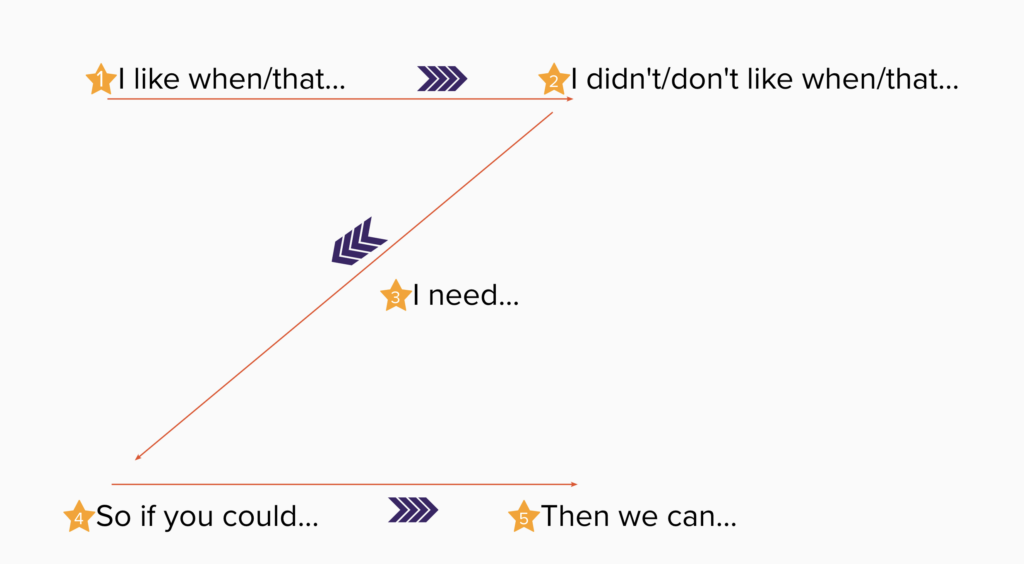
November 29, 2021
Three conflict resolution strategies young gxrls can practice this holiday season
Note: Throughout this article, we use the terms “womxn” and “gxrl” as terms to include anyone, including transgender, non-binary, genderfluid, polygender, and gender non-conforming people, whose key gender identity, experience, and internal perception on the spectrum of gender is woman or girl.
This holiday season, young women and gxrls across the country continue to face a slew of challenges brought on by the ongoing COVID-19 pandemic. From increased time spent online (Spending time online makes gxrls feel worse. How can we support a healthier approach to self-esteem?) to loneliness stemming from social distancing and remote schooling, young gxrls are navigating a very different world from the one they once knew. The holiday season can be challenging for many, as families spend more time together and family dynamics come into play, the season can increase the possibility of interpersonal tension and conflict.
YW Boston’s gxrls leadership program, the F.Y.R.E. Initiative empowers its participants, also known as “Igniters,” through a curriculum incorporating social justice education, positive identity development, and civic engagement. F.Y.R.E., which stands for Fierce Youth Reigniting Excellence, is a leadership program that takes place in school or during Out of School Time programs and it incorporates social justice education, positive identity development, and civic engagement.
A core element of the F.Y.R.E. Initiative is helping Igniters build a sense of self and resilience, and to understand how their identities are impacted by systems of power so that they can make a positive impact in their community. As part of its curriculum, the F.Y.R.E. Initiative emphasizes the importance of conflict resolution as a tool of empowerment that can help them develop healthy relationships with themselves and others.
Below are some takeaways from the F.Y.R.E. Initiative’s Healthy Relationships and Conflict Resolution session that can help young gxrls navigate conflict this holiday season, or any time of year:
1. Understanding the difference between constructive and destructive conflict resolution
As part of the F.Y.R.E. curriculum, Igniters explore the difference between constructive and destructive conflict resolution. Constructive or healthy conflict resolution is one that leads to social-emotional learning and improved relationships. While destructive or unhealthy conflict resolution leads to escalation, anger, and further miscommunication.
2. Identifying emotional responses to conflict
One important aspect of navigating conflict in a healthy way is recognizing how you respond to different situations. Igniters utilize the Feelings Wheel to reflect on physical indicators to different emotions such as anger, happiness, sadness, and surprise. In conjunction with the Feelings Wheels, Igniters perform a Body Awareness exercise to practice self-awareness and identify ways to regulate emotions.

3. Practicing a structured approach to solving conflict
After having practiced identifying healthy and unhealthy behaviors in relationships and thinking about ways to healthily communicate and respond to unhealthy behaviors, igniters practice identifying new ways to resolve conflict and how to envision themselves as advocates for conflict resolution. One way of doing this is through the Z-Method, where Igniters answer a few key questions to map out needs and steps towards conflict resolution:
- I like when/that… (identifying positive emotional responses)
- I didn’t/don’t like when/that… (identifying negative emotional responses)
- I need… (identifying needs and boundaries)
- So, if you could… (determining action steps)
- Then we can… (envisioning a solution)

___

_____
About YW Boston’s F.Y.R.E. Initiative
With the F.Y.R.E. Initiative, launched in the Fall of 2019, YW Boston facilitators conduct a 12-15-week leadership development series for girls grades 6th through 9th. The series brings together social justice education, positive identity development, and civic engagement, culminating in small group civics projects. This model takes place in schools or Out of School Time programs, and it is developed to operate in a “girls group” structure rather than a traditional classroom structure. Core to the program is an effort to provide experiential learning opportunities and dialogue to build understanding and increase social-emotional learning.

